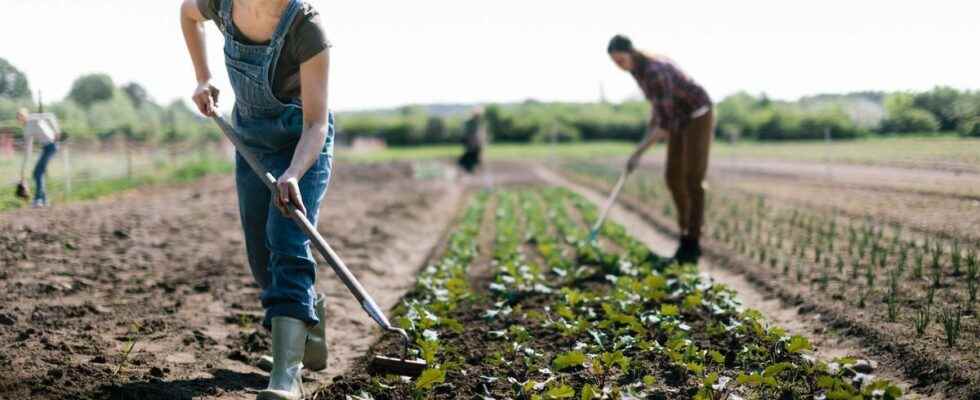Published on
Updated
Reading 2 mins.
When it comes to encouraging farmers to adopt sustainable development approaches, women are in the best position to convince them to take action. This is the conclusion of research carried out in Indonesia by an Australian researcher, in collaboration with the NGO Swisscontact.
Women around the world are subject to many forms of sexist discrimination, more or less marked depending on culture and country, although the scourge unfortunately remains universal and systemic. One of the effects of these patriarchal societies? Women find it more difficult (regardless of their will or skills) to be heard without being cut off or being an authority figure. The English political journalist Mary Ann Sieghart even theorized this concept, which she calls “authority gap”.
It is more or less from this postulate that Petr Matous, professor at the Faculty of Engineering at the University of Sydney, started. The latter made investigation aimed at measuring the impact of opinion leaders on actors in agricultural communities on the island of Sulawesi, located in Indonesia, northeast of Bali. The objective was to determine which members of these communities were most likely to convince farmers to change their practices to begin their ecological transition and develop programs centered around the notion of sustainability. The survey was carried out among more than 2000 farmers. Participants were asked to identify the most influential opinion leaders in their community. These designated “leaders” then had to convince as many producers as possible to improve the health of their cocoa crops by pruning them with a pair of scissors specially provided for the occasion.
Women opinion leaders in the agricultural world?
The results show that older men are the ones who succeeded in convincing the most farmers to prune their cocoa trees. But a second experiment proves that with a more inclusive sample and a larger number of women and young people, potential opinion leaders change their face. Indeed, the chances of convincing the farmers to use said scissors were twice as high with the women as with the older men in the first group. A result that did not fail to surprise the authors of the work. “From farming and construction to banking and politics, older men are often seen as the most influential in their networks. But in our study, they didn’t have the greatest impact”note the latter in a press release.
On paper, women were indeed less likely to be seen as opinion leaders. But in fact, they are the ones who have demonstrated the greatest potential for persuasion, since their recommendations have led to real action. These results reflect a possible change in mentalities, insofar as, in Indonesia, agriculture is a sector which remains largely dominated by men.
“Few women occupy prominent roles in local farmers’ groups, many of which are grassroots organizations aimed at improving the lives of local people and channeling support from government and international organizations,” emphasizes Professor Matous.
The study was carried out in collaboration with the NGO Swisscontact, which trains cocoa farmers to improve their skills throughout Indonesia, with the aim of encouraging them to adopt a sustainable agricultural approach, both from a from an environmental point of view as well as yields.
“The rural communities we work with are typically traditional, hierarchical and paternalistic—people of high status are usually older men. Our program aims to promote diversity and inclusion […]. The results of the study strengthen the arguments in favor of this approach.”supports Nadya Aulika Runnisa, Inclusive Market Specialist for Swisscontact Indonesia.
